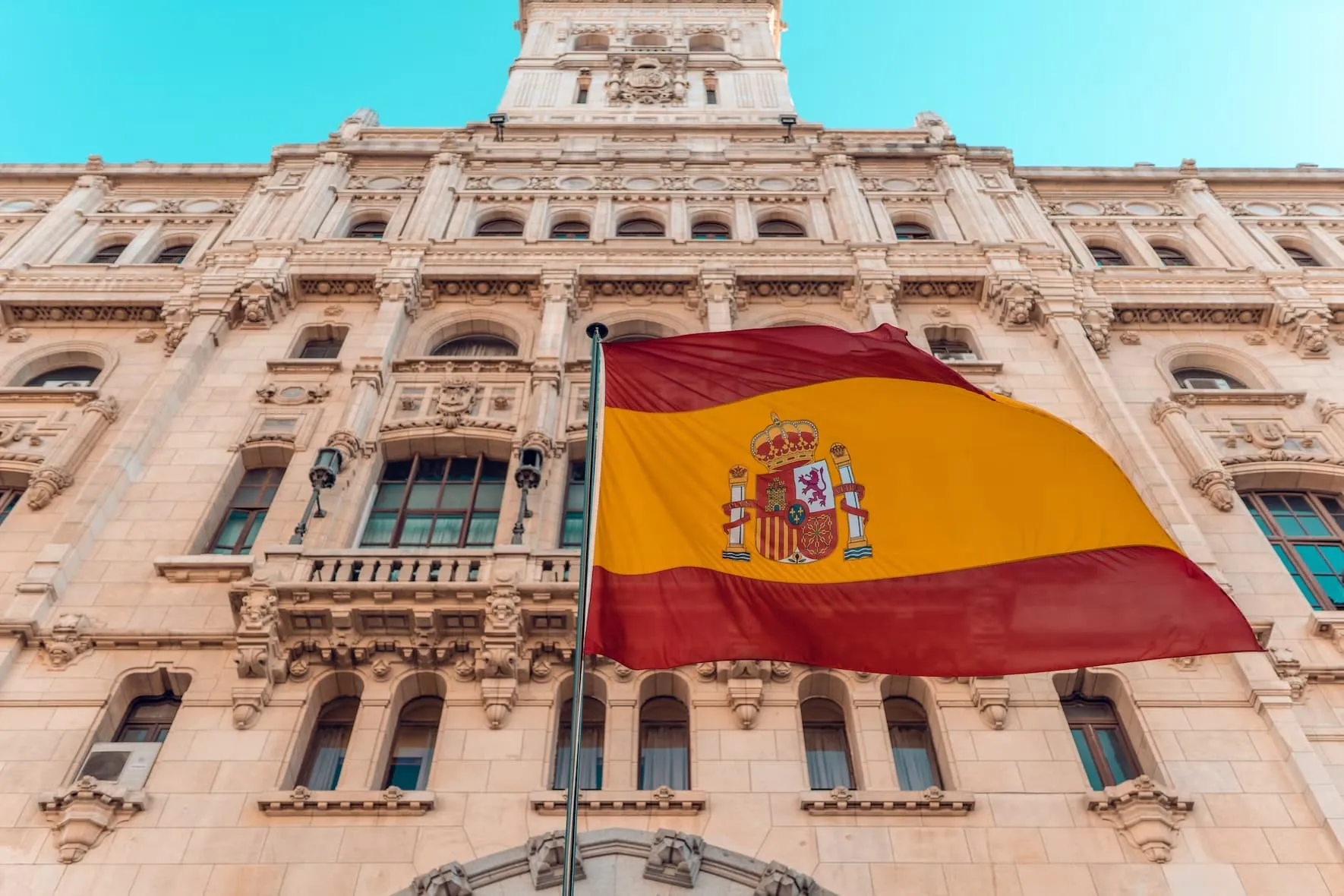Digital Nomad Visa Spain
If you’re a remote worker who wants to live and work remotely in Spain for an extended period, you should apply for the digital nomad visa. Find out the requirements you need to fulfil to work remotely from Spain.
For more inquiries about the Spain digital nomad visa, its requirements, and bespoke advice on how to apply to be a remote worker in Spain, get in touch with our immigration lawyers today. Call us at +44 (0)333 414 9244, or contact us online.
Read our 1001 reviews
Request a call back from our immigration experts
Benefits of Choosing IAS‘ Spain Immigration Lawyers
When it comes to obtaining a Spain visa or permit, IAS Spain immigration lawyers are well-equipped to help you.
With IAS’ track record of successfully helping clients visit or immigrate to Ireland successfully, we can help businesses and individuals achieve their goals.
Our dedicated immigration lawyers provide our services through a comprehensive and personalised approach. With IAS, you enjoy:

Expert support from an experienced immigration lawyer dedicated to your success



Support in gathering supporting documents and completing a high-quality application.



Confidence that your case is being handled by an experienced team.



In-house document checks done by lawyers who are accredited by the IBA in Madrid and Seville.
Services we Provide
What is a Digital Nomad Visa in Spain?
The Spain digital nomad also visa is a residence visa for digital nomads also known as international teleworker (Teletrabajadores de carácter internacional) who want to live and work remotely from Spain. It implies you can relocate to Spain for at least a year but only work with companies outside the country.
Spain offers the digital nomad visa (valid for a year) and the digital nomad residency permit (valid for three years) for remote workers. Both visas serve the same purpose, but you can get the digital nomad visa in your country, while you can only obtain the latter in Spain.
Additionally, the digital nomad residency permit can be renewed for two more years. However, if you want to continue working remotely long-term in Spain, consider getting a permanent residency visa or becoming a Spanish citizen. Note that you can only apply for a permanent residence visa after five years of your stay in Spain.
As a result of the digital nomad visa, foreigners can work remotely from Spain on their laptops and still experience what it is like to reside there. In addition, the visa offers an excellent means for Spain to attract international talents to drive digital entrepreneurship.
You can either apply for a digital nomad visa within your home country or when you arrive in Spain via a tourist visa. Also, you can take your dependents along via the same digital nomad visa application.
Thankfully, the visa application is quick, so you can file an appeal almost immediately if your application gets rejected. It will take about 20 days for your visa to be processed. Discover more details about the Spanish visa later in this article.
Who Can Apply For Spain Digital Nomad Visa?
The new digital nomad visa in Spain is intended for digital nomads (teletrabajadores de carácter internacional) with non-European Economic Area (EEA) nationality, such as the UK. On the other hand, a remote worker or freelancer from a European country can work in Spain for six months using only their passport.
However, they must obtain a resident Foreign Identity Number (NIE) to extend their stay in Spain. The NIE is a unique number for remote workers or a freelancer who wishes to reside in Spain for more than six months.
The digital nomad visa is a temporary residence visa for remote workers who are any of the following:
- An employee at a company outside Spain.
- A digital entrepreneur or freelancer who works with clients spread across the world.
- A freelancer or an employee at a foreign company in Spain (as long as this work does not exceed 20% of your overall professional activity).
To succeed with your application, you must fulfil a minimum income requirement and pay the visa fee to succeed with your application.
What Is the Validity Period of the Digital Nomad Visa?
When you apply for a new digital nomad visa within Spain while on a tourist visa, you will get a digital nomad residency permit valid for three years.
On the other hand, if you apply in your country through a Spanish Consulate, you will get a new digital nomad visa valid for one year. You can switch to the digital nomad residency permit at the end of your first year in Spain.
If you wish to apply for the permanent residency permit, you should have lived in the country for at least five years.
That is only possible after you have received your digital nomad visa, stayed in the country for three years and extended it for another two years. Likewise, if you plan to become a Spanish citizen, you must have lived in Spain for at least ten years.
With digital nomad visas, non-EU citizens can travel freely around EU countries. However, you can only stay outside Spain for at most a year out of the five years to qualify for a permanent residency visa.
What Restrictions Are There With a Spain Digital Nomad Visa?
There are several restrictions with the new digital nomad visa applications in Spain that you should know.
Firstly, you will need to have a remote position with clients or employers outside of Spain. It implies that your income from Spain can be at most 20% of your total revenue.
Spain used to have a travel restriction due to the COVID-19 pandemic, but the laws have changed.
The COVID-19 test certificate is no longer a requirement to enter Spain at the present moment. However, you should keep in mind that the law may change if the virus spreads again.
It is advisable to always find out the current travel restrictions in Spain before you start your application or make plans to travel. You can find this information from the Spanish Consulate in your country of origin or residence.




What’s the Difference Between the Spain Digital Nomad Visa and Non-lucrative Visa?
In November 2022, the Spanish parliament started deliberating on the digital nomad visa and in December 2022, they finally approved it.
Prior to that, many digital nomads applied for other kinds of permits to work in Spain, including a non-lucrative visa. Since the non-lucrative visa was not a work permit, it wasn’t a legal means for digital nomads to work in the country.
The Spanish non-lucrative residence visa is for non-EU citizens who wish to stay in the country for more than three months but aren’t working.
It was established for individuals with sufficient funds to support themselves without working in Spain. Examples include expat retirees or those who want to study in Spain.
The non-lucrative residence visa is valid for 90 days, so foreigners are encouraged to apply for the Foreigner Identity Card within the first month of their stay in Spain. You can apply at the nearest Police Station or the Foreign Nationals’ Office.
On the other hand, the digital nomad visa is a temporary visa for remote workers and freelancers that provides a legal structure to work remotely in Spain.
You can be self-employed or work for employers out of Spain to be eligible.
Spain Digital Nomad Visa Requirements
Proof of Income
To qualify for the Spain digital nomad permit, you must show that you can support yourself and your family when you move to Spain. You must demonstrate a minimum income of €2,160 per month or €25,920 annually, with varying requirements for families and dependents.
The minimum income requirement increases for dependents, with a family of two requiring €2,970 per month, a family of three needing €3,240 per month, and a family of four requiring €3,510 per month.
Your proof of income or employment contract must be for at least three months prior to filing.
However, if you are self-employed, you must show proof of current contracts for at least the last three months with an income of no less than 2,200 euros monthly.
You can also demonstrate your income through the following:
- A bank statement showing your financial status and savings.
- Your tax return statement or pay stubs.
The important thing here is to prove that you can care for yourself and your dependents (if applicable) while in Spain.
Health Insurance
If you apply in your home country, you will receive a digital nomad visa valid for a year. Therefore, you will need to prove your Spanish private health insurance valid within your first year in Spain.
On the other hand, if you are applying for a visa within Spain, you will receive a digital nomad residence visa, valid for three years, meaning your health insurance should be valid till then or renewed yearly.
Another condition for the health insurance requirement is that the insurance policy comes from an insurance company that is allowed to operate in Spain.
Additionally, your health insurance should be comprehensive and cover every medical expense that may arise during your stay.
Proof of Remote Worker Status
To obtain the Digital Nomad visa as a remote worker you need to prove your ability to work online from Spain, possess expertise in your field, show job stability for at least three months, have a well-established company with a one-year history, and ensure no more than 20% of your income comes from Spanish clients.
Background Check
While applying for digital nomad visas, you will be asked to prove your criminal record and also have your fingerprints taken.
A police clearance certificate from your state of residence should suffice. Depending on the consulate in your country, your document may need to be at most three months old and should be apostilled.


Application Form and Fee
A successful visa application requires that you fill and sign the visa application form and pay a fee.
The application fee varies within and outside Spain (usually around €80), but you are to pay it after filling out the application form and are about to submit it. When filling out the application form, ensure the information you provide is accurate.
Once you are done, ensure that you translate the document into Spanish.
If you have more questions regarding the digital nomad visa application fee in and out of Spain, don’t hesitate to reach out to our immigration lawyer for fast, expert advice.
Call us on +44 (0)333 414 9244, or contact us online today.
What Documents Do I Need to Provide?
Applying Alone
You will usually need to provide the following documents and information at your appointment:
- Original and copy of your passport and copies of your family member’s passport.
- Copy of employment contract, which must be for at least three months income prior to filing OR, if self-employed, proof of previous agreements, which is for at least three months of wage, no less than 2,200 euros per month.
- Authorisation from employers that specifically allows you to work remotely in Spain regardless of one is employed or self-employed.
- If self-employed, you must show ongoing or future contracts for at least several months and preferably a year from the filing.
- Proof that the company you work for, if an employee, has been incorporated for no less than a year.
- Proof that you have at least three years of work experience or have graduated from a renowned university, college or technical school.
- Proof that work can be executed remotely.
- Proof of health insurance.
You will be asked to provide other information, such as a criminal record certificate and a medical certificate.
The certificate indicates that you do not have a disease that could endanger public health. You will also be required to fill out appropriate administrative forms and pay relevant administrative fees.
Applying WIth Family
If you would like to take your dependents to Spain, you have to also provide the following for them:
- Original and copy of the passport of your family member.
- Proof of the familial relationship. For instance, a marriage certificate or equivalent and birth certificate(s).
- Evidence that you have the means to support your whole family in Spain at the time of writing is 970 euros per month for the significant other and 330 euros per month per additional dependent.
- Proof of health insurance.
You will also be asked to provide other information about your dependent, such as a criminal record certificate and medical certificate. They must also fill out appropriate administrative forms and pay relevant administrative fees.


How Do I Apply for a Spain Digital Nomad Visa?
Overview
Digital nomads can choose between two means of applying for a Spanish digital nomad visa.
- Appy in Spain
- Apply Abroad
Appy in Spain
You can apply for the visa when you arrive in Spain at the Ministry of Foreign Affairs via a tourist visa, which is valid for three months.
You should have gotten all your documents ready before moving to the country and have them apostilled and translated.
As you have seen, the visa application fee is cheaper when applying for a visa within the country than outside.
Once you have received a positive response regarding your application, you must register your fingerprints at the nearest police office to get your physical residency card.
Apply Abroad
You can also apply from your country of citizenship and get a one-year visa which you can modify later to obtain a temporary residence permit (valid for three years).
However, that can only happen if you still fulfil every requirement as during your initial application.
To start your application and pay the fees, you must visit the Spanish Consulate closest to your residence. Depending on the Spanish Embassy you visit, you will have to apostille and translate each document.
Since the laws of the Spain digital nomad visa are new, the exact application process can be confusing, so it is advisable to navigate the process by using the help of immigration lawyers.
Our immigration lawyers can help with further questions regarding the application steps and how to renew the visa. You can contact us at +44 (0)333 414 9244 or online.


Do I Still Need to Pay Taxes as a Digital Nomad in Spain?
Yes, but the tax system is advantageous for foreign digital nomads in Spain. As an expat digital nomad in Spain, you will be taxed through the improved Non-resident Income Tax Regime, which allows you to save tax.
Compared to the regular resident income tax rates (IRPF) in Spain, you will be paying much less on your income through the non–resident income tax (IRNR).
You will only pay 15 to 24% of your income with the non-resident visa, compared to the regular income tax of up to 48% on higher salaries.
Additionally, to be eligible for the non-resident tax, you should apply with the Spanish Tax Agency within the first six months after obtaining your digital nomad visa.
Spain Permanent Residency Visa
What Is it?
The permanent residency visa can allow non-EU citizens, including digital nomads who have stayed in Spain legally for up to 5 years, to live in the country indefinitely.
During your stay in Spain as a digital nomad, you must have stayed outside Spain for at most six months to a year to be eligible for the digital nomad visa.


How to Apply for it?
The timeline for obtaining a permanent residency visa varies depending on how you enter Spain.
For instance, if you applied for a digital nomad visa in Spain and renewed it for two more years, you will have spent five years and are now qualified to apply for a permanent residency visa.
However, if you applied outside Spain, you would obtain a digital nomad visa valid for a year. Additionally, you would need to modify your visa to a residency permit, valid for three years and renew it for two more years.
That means you would have to stay in Spain for six years before you can apply for a permanent residency visa.
You will need the following documents during your permanent residence visa application in Spain:
- Completed and signed the EX-11 form
- Your present residency card
- Original passport and its copy
You should start your permanent residency application at least 60 days before your present permit expires.
The benefits of working in Spain as a digital nomad
Working in Spain as a digital nomad offers several immigration benefits:
- Spain offers a specific visa for remote workers, allowing you to work and live legally in the country for up to one year, with the possibility of extension. This visa simplifies the immigration process.
- The Spanish nomad visa doesn’t restrict the type of work you can do, giving you the flexibility to pursue various remote job opportunities and freelance work.
- If you’re a digital nomad with a family, Spain’s digital nomad visa allows your dependents to join you, provided you meet the income requirements for each family member.
- The digital nomad visa application process is relatively straightforward, requiring proof of income and a clean criminal record. You don’t need to make a significant investment or secure a job offer beforehand to satisfy the Spain digital nomad visa requirements.
- Spain is part of the Schengen Area, granting you access to 26 European countries without the need for additional visas or permits during your stay.
- While Spanish is the primary language, many Spaniards and expats speak English, and you can immerse yourself in a culture where you can improve your language skills while on the Spain remote work visa.
How Can IAS Help With Nomad Visa Application?
The Spain Digital Nomad visa represents a new visa for remote workers and self-employed foreigners who wish for more flexibility to work remotely from Spain.
However, the immigration laws for the digital nomad visa are new, and it is possible to miss important information or make mistakes.
It is why we recommend that you reach out to our immigration lawyers. They are experts at handling Spain immigration laws and will help with managing and filing your application to the highest standards.
You may worry about your eligibility due to your criminal record and minimum income. If that’s the case, our immigration lawyers can help you select the best way to apply for a visa.
We can also provide insights into how the application process will look, the challenges you are likely to face and how to avoid them.
With the help of our lawyers, you can confirm the exact visa application fee to pay and the income requirement you are to fulfil at the time of your application.
Above all, our lawyers are willing to give details of the restrictions and requirements of the visa application so that you can confirm your eligibility.
If you have further questions regarding the Spain digital nomad visa, our lawyers are enthusiastic about giving answers. Contact us at +44 (0)333 414 9244, or contact us online.
Table of Contents
Table of Contents will appear here.Legal Disclaimer
The information provided is for general informational purposes only and does not constitute legal advice. While we make every effort to ensure accuracy, the law may change, and the information may not reflect the most current legal developments. No warranty is given regarding the accuracy or completeness of the information, and we do not accept liability in such cases. We recommend consulting with a qualified lawyer at Immigration Advice Service before making any decisions based on the content provided.
Frequently Asked Questions
There is no right or wrong answer to this. Your Spain application can go smoothly so far as you are eligible and provide the proper documents for your application.
Also, you should be aware of the travel restrictions during your application period to avoid frustration when you can’t leave for Spain immediately. It is advisable to use the help of immigration lawyers’ assistance to lessen your application’s stress.
The application processing time is about 20 days, and you need to also perform a background check which can take up to 2 to 3 weeks, depending on where you do it.
While the application fee varies within and outside Spain (generally around €80), you should also consider the costs of getting your private health insurance, flight ticket, accommodation, and other minimal fees.


What our clients are saying
How our UK Immigration Lawyers can help
At the Immigration Advice Service our lawyers specialise in a wide range of UK visas, nationality and asylum applications and have represented clients in various successful complex and high-profile cases.















